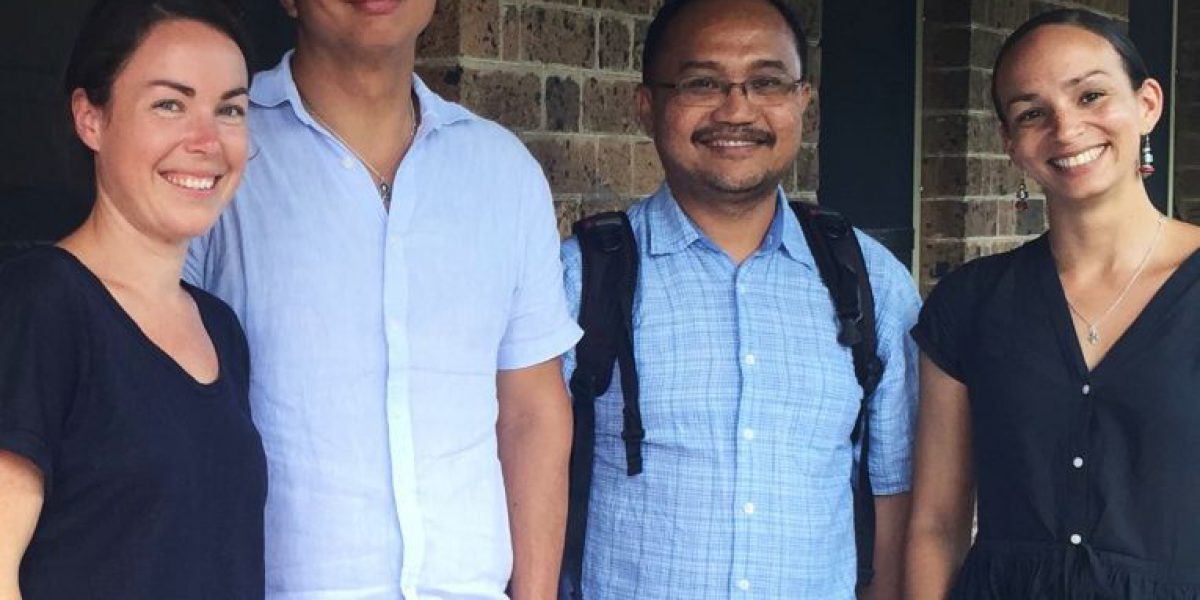Asia Pacific: Harsh border policies not the whole story
01 March 2016

“The issue of refugees and asylum seekers in urban areas will become one of our main challenges in the coming years along with the inter-religious and inter-faith element of it,” said Fr. Bambang A. Sipayung SJ, Director Jesuit Refugee Service (JRS) Asia-Pacific.
Fr. Sipayung SJ was speaking after spending nearly a week in Australia, in part to look at the social and political context of local JRS activity alongside regional neighbors. He spent some time at Arrupe Place, JRS’ centre for refugee services, where he spoke with caseworkers, staff and volunteers.
“I was impressed by the work at Arrupe Place which manifests accompaniment as one of the core values of JRS and does it in a collaborative way with a number of partners.”
The visit to Arrupe Place, Fr. Sipayung SJ said, showed him that that Australia’s international reputation for harsh policies towards people seeking asylum was not “the whole story”.
“I think this is the importance of Arrupe Place and the actions of ordinary people who volunteer there to help refugees adjust to Australian society,” he said. “This is living advocacy that shows many Australians have a critical stance of their own government policies through their real actions.”
The increase of refugees in urban areas, such as Bangkok, Jakarta and even in Australia, has led to a shift in the focus of JRS’ work in the last five to ten years said Fr. Sipayung SJ. Now much of the services provided for people seeking asylum are located in cities.
“Education, psychosocial, and pastoral elements of our work will still be our main priorities in the region but probably within a more urban setting,” he said. “Geographically, refugees were previously located in rural or remote camps, but are now gradually moving into urban settings which has different and unique challenges.”
This is a part of a larger trend which has seen a growth in the number of refugees who leave camps or bypass them entirely, preferring to settle in urban communities where they hope to find jobs to support themselves and their families.
“JRS is currently supporting some of the 13,000 refugee and asylum seekers living in urban areas in Indonesia, either in cities or in detention centres,” said Fr. Sipayung SJ. “In Thailand there is also an increasing number of refugees and asylum seekers seeking protection in urban areas with close to 10,000 registered by the United Nations Refugee Agency (UNHCR).”
“The inter-religious and inter-faith dimension has been a crucial part of our work from the beginning but it has become more intense because we need to interact with several religions and a secular world as well, at the time.”
“Education will remain our main priority in the region,” said Fr. Sipayung SJ. “This will also relate to the other issues of collaboration with established Jesuit institutions to achieve a greater impact and to build awareness for a more inclusive future generation.”
“It will be a challenge for JRS in the region, but it will be a productive and healthy challenge to embark on.”


